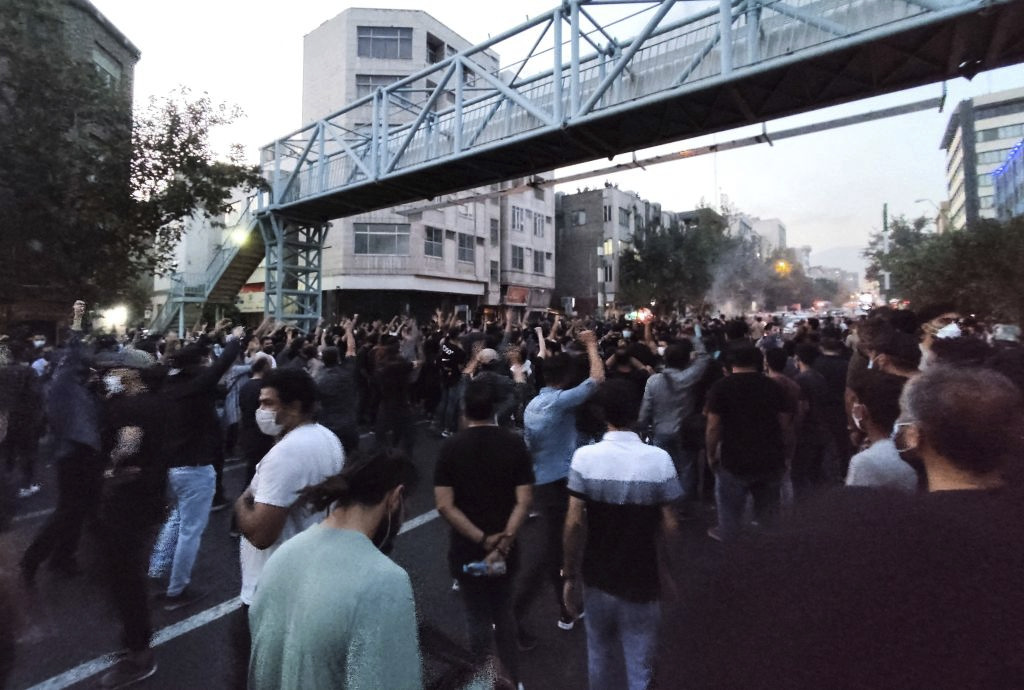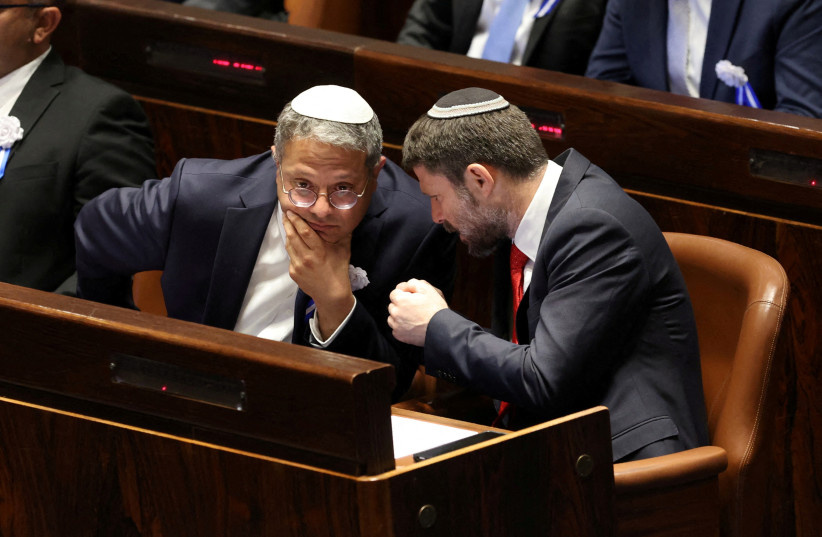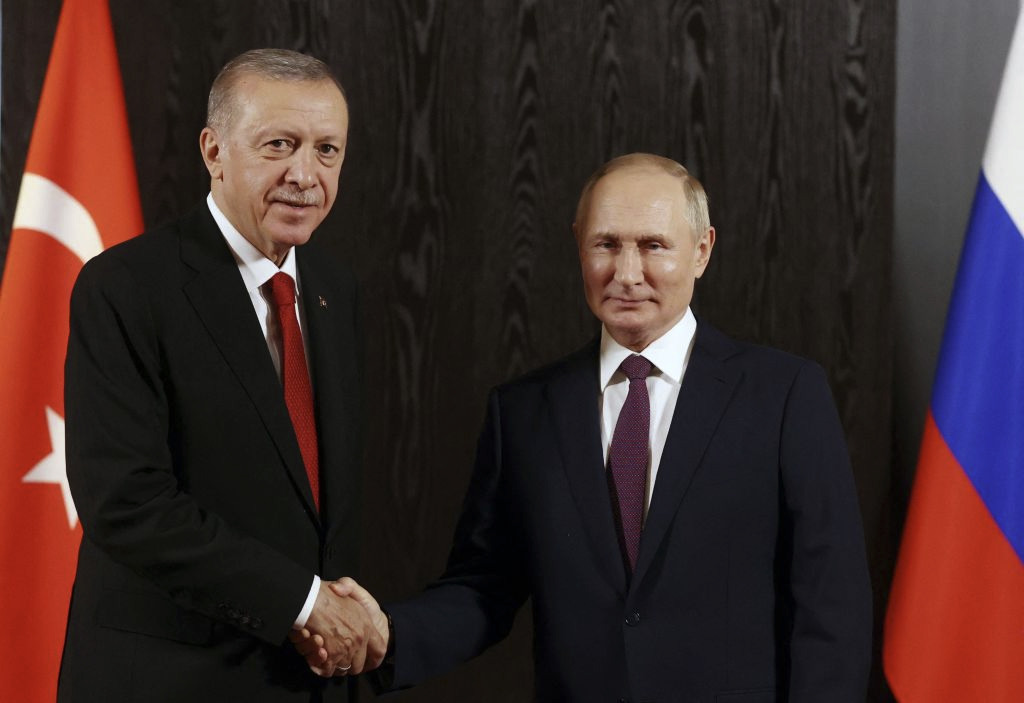by Aaron Kliegman
The attorney general's decision to name an independent prosecutor for multiple investigations focused on Trump has exacerbated concerns about a politicized Justice Department.
Legal experts are raising concerns about the merits and motivations of Attorney General Merrick Garland's announcement Friday that he's appointing a special counsel to oversee multiple Justice Department investigations involving former President Donald Trump, with some prominent voices asking why the department hasn't taken a similar step with the ongoing probe into President Biden's son, Hunter Biden.
"The appointment of yet another special prosecutor assigned with the specific target of Donald Trump shows the lengths to which the corrupt O'Biden administration will go to try and stop Trump," said Sidney Powell, a lawyer and former federal prosecutor, combining the last names of Barack Obama and Joe Biden.
"No one," she continued, "has been persecuted at taxpayer expense more relentlessly than has Trump, and the double standard is blatant. They protect Hunter and Joe Biden, Hillary Clinton, and others from investigation for flagrant criminal conduct and manufacture any excuse to go after Trump."
Powell's words follow Garland's appointment of Jack Smith, a former career Justice Department prosecutor and former chief prosecutor at The Hague, to serve as special counsel to oversee two ongoing criminal investigations.
The first is the investigation into whether any individual, Trump included, attempted to interfere unlawfully in the transfer of presidential power or the electoral certification process in connection with the Jan. 6 Capitol riot. The second is the investigation into the documents the FBI seized from Trump's Mar-a-Lago estate in August and any obstruction of justice charges that could stem from it.
Garland's announcement came three days after Trump launched his 2024 presidential campaign.
"The Department of Justice has long recognized that in certain extraordinary cases it is in the public interest to appoint a special prosecutor to independently manage an investigation and prosecution," said Garland. "Based on recent developments, including the former president's announcement that he is a candidate for president in the next election and the sitting president's stated intention to be a candidate as well, I have concluded that it is in the public interest to appoint a special counsel."
Trump blasted the appointment as the "politicization of justice" and said he "won't partake in it" in comments to Fox News Digital.
Observers were quick to similarly criticize Garland's decision, noting a potential double standard as the Justice Department hasn't named a special counsel to oversee its ongoing investigation into Hunter Biden.
"By appointing a special counsel to investigate his boss's political enemy, Attorney General Merrick Garland continues to politicize and weaponize the Biden Justice Department — all while Garland ignores smoking-gun evidence of Biden's foreign corruption," tweeted Mike Davis, former chief counsel for nominations for the Senate Judiciary Committee.
Other legal experts thought Garland's appointment itself was fine but took issue with not doing the same for Biden.
"Appointment of a special counsel is a significant step, but Garland is well within his rights to do so," said Geoff Shepard, a lawyer and author who served in the Nixon administration. "The disturbing thing is that he has not already done so with regard to the Hunter Biden investigation. It reeks of a double standard and gives critics plenty of reason to object."
The Justice Department has been investigating the president's son for potential violation of tax laws as well as foreign lobbying violations related to his business dealings overseas. David Weiss, the U.S. attorney for Delaware, is the federal prosecutor heading the probe, which to date hasn't yielded any charges — although federal agents have reportedly gathered enough information to feel confident charging Biden with multiple crimes related to taxes and a gun purchase.
Weiss was appointed by Trump, potentially assuaging some concerns that the Biden Justice Department won't honestly conduct its probe. However, as a federal prosecutor, Weiss can still be hired and fired by President Biden, noted Alan Dershowitz, a renowned civil liberties lawyer and professor emeritus at Harvard Law School.
Republicans in Congress have previously requested that Garland grant special counsel protections and authorities to Weiss as he investigates the president's son, so far to no avail. On Thursday, House Republican leaders detailed their plans to investigate the Biden family's business dealings and alleged criminal activity when Republicans officially take control of the House in January when a new Congress is sworn in.
Such an effort could be necessary, according to some observers who argue Weiss isn't getting the job done.
Weiss is an "embarrassment," according to Joe diGenova, a former federal prosecutor who argued the Hunter Biden probe should be wrapped up by now. "It shows the political nature of Garland, not using a special counsel where he should in one case and in the other choosing someone not up to the caliber that's necessary when you're dealing with Trump."
DiGenova argued that while Smith "obviously has all kinds of experience" and is likely a "fine lawyer," someone of "greater stature" like a former judge or attorney general would be better suited for this assignment investigating a former president under "questionable" circumstances.
"I've always thought it's important to pick people of prominence to bring credibility to it," he said. "Picking someone that no one knows is not, in my opinion, a good idea. It's important to find someone with a more known track record and more of a public figure."
Some legal experts disagreed, countering that Smith is the right man for the job.
"Jack is a prosecutor's prosecutor," said Andrew Weissmann, a former top Justice Department official and senior prosecutor in the Trump-Russia investigation. "He has been a career prosecutor for decades, across numerous administrations, and does not have a political bone in his body. To boot: He is as fast as [lightning], cutting to the chase in his investigations, and does not get waylaid by irrelevant side issues.
"Jack surely knows the complete drubbing he is going to take in certain quarters of the media, and he has the thick skin and fortitude that is required to brush that off for what it is."
Dershowitz agreed that Smith "seems very qualified," adding that the appointment of a special counsel helps show the investigation isn't being done by someone who can be fired or promoted by the target's political opponent.
"The appearance of an attorney general investigating a potential political opponent of his boss is reduced with the special prosecutor appointment," he said.
However, he added, special prosecutors have particular targets, focusing on specific individuals, "raising questions about the fairness of the law. Prosecutors normally prioritize who to go after with several investigations to tackle, whereas special prosecutors have only one target."
The late D.C. Circuit Judge Laurence Silberman expressed a similar sentiment in an oft-cited passage from a 1988 ruling concerning special counsels, arguing there's inherent pressure on them given their independence and narrow yet public mandate to obtain an indictment and conviction rather than just administer the law. (Silberman's ruling was later overturned by the Supreme Court in Morrison v. Olson.)
A point of concern to watch with Smith's appointment, noted Shepard, is whether he fills his staff with objective career prosecutors or more openly political individuals, potentially reflecting a political bias in the special counsel investigation.
One key problem, some critics argued, isn't necessarily the special counsel announcement itself but rather the person who made the announcement.
"Garland has so weaponized the Justice Department against conservatives and Republicans that anything he does is questionable," said diGenova. "Regardless of the process of picking Smith, it's tainted because Garland is doing it."
Just the News has previously reported on growing outcry among legal experts and civil libertarians over what they described as the Justice Department's strong-arm tactics targeting Trump allies and critics of the Biden administration
According to Dershowitz, however, right now the best course of action is to hold off on judgment.
"Let's wait and see," he said. "We should judge [Smith] on his merits. Of course, there are risks this could be political. It's so important for justice to be done and to be seen by the public to be done. But I don't envy the special prosecutor in this case. He will be pilloried."
Aaron Kliegman
Source: https://justthenews.com/government/federal-agencies/doj-appoints-special-counsel-trump-probes-legal-experts-ask-what-about








